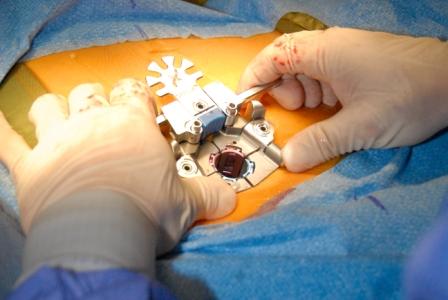Before you have Spine Surgery
“Before you have Spine Surgery……..” there should be a discussion on the risks, benefits, and alternatives.
I see patients for surgery second opinions almost every day. Naturally, the patients are in pain, and often have some weakness. But, I am surprised on how many patients have not truly explored their alternatives. So, here is a list of things you should consider Before you have Spine Surgery.
Before you Have Spine Surgery, have you discussed the findings with your physician? Patients that do well with surgery typically have three factors that must be present.
- The physical findings are of a consistent pattern. That means there are a corresponding set of findings that are consistent with the presumed diagnosis. To give a good example, a person may have a large L5-S1 disk herniation as the diagnosis. On the physical exam, there is evidence of irriation of the L5 and S1 nerves. The areas of numbness correspond to the proper skin areas. There are reflex changes consistent with those nerves. There is a pattern of weakness consistent with the nerves. There are positive so call provocative signs, indicating nerve entrapment. Examples are the straight leg raising signs, and a extended position when sitting.
- The diagnostic testing are consistet with the diagnosis. In other words, the MRI or CT scan identifies findings consistent with that particular nerve compression pattern. Also, the diagnostic testing confirms isolation of the findings to that particular nerve compression. Unfortunately for physicians, a difficult decision occurs where there are multiple findings on MRI’s and CT scans. While there are multiple findings on the diagnostic test, the physical exam does not demonstate corresponding physical findings. In this situation, there is risk that surgical management may not improve all the complaints.
- The patient has given non-surgical alternatives an appropriate amount of time to work. In extreme situations, such as progressive weakness, loss of bowel and bladder function, acute fractures, or the presence of infection or tumor, surgery may be emergently indicated. In most situations, however, non-surgical treatments often do improve the situation. Options such as medications, therapy, chiropractic care, acupuncture, steroid injections, and massage can and do improve the situation. There has been many studies on the efficacy of each of these alternatives. While not all studies prove the efficacy of each of these modalities, I personally encourage patients to pursue any and all non-surgical treatments for at least 6-8 weeks. Before you have Spine Surgery, you must feel certain that you have given the non-surgical treatments a chance to work. Only then, can the patient be properly psychologically prepared for surgery.
Before you Have Spine Surgery, you must also be certain that you have a good understanding of the nature of the surgery. Your surgeon should discuss the operation in detail. You must feel confident that you understand the necessity of the surgery, and prepare for the outcomes, both good and bad.
Before you Have Spine Surgery, you must prepare your home for the recovery period. Make sure you have adequate help at home for the initial recovery period. Prepare your bedding, and make sure your bed room is moved to the first floor if you have a mult-story home.
Before you have Spine Surgery, you must consider the financial implications of the operation. While your health is important, it still takes monetary resources to arrange surgery, and provide for your needs during recovery. Make sure you have adequately made arrangements with your work place, and you have document the needs so your insurance policies can properly execute surgery authorization, short term disability, temporary parking, etc. It will be much easier to deal with these issues before the operation.
Before you Have Spine Surgery, get in the best physical shape possible. I know most of you are in too much pain to do any exercise, but EXERCISE ANYWAY! While specific parts of your body may hurt because you need surgery, the other parts can still be completely functional, and need to be in it’s best shape. After surgery, while there is immediate improvement to certain areas, you will have some pain and weakness because of the incision. If you are in better shape, you will be able to recover faster, as you do not have to deal with a de-conditioned body as well as recover from the pain of surgery. To give an example, our professional athletes bounce back much faster from surgery. That is because they are usually very motivated. But, also, because they are in good shape even before the operation.
Finally, Before you Have Spine Surgery, make sure you are confident in your surgeon. I know some of you go to certain surgeons, as they are the only ones on your plan. I am sure all the surgeons are qualified. But, it is clear that the confidence of the patient often leads to better outcomes. If your surgeon does not give you that confidence, maybe you should consider finding one that will give you that feeling.
Last modified: January 5, 2018










